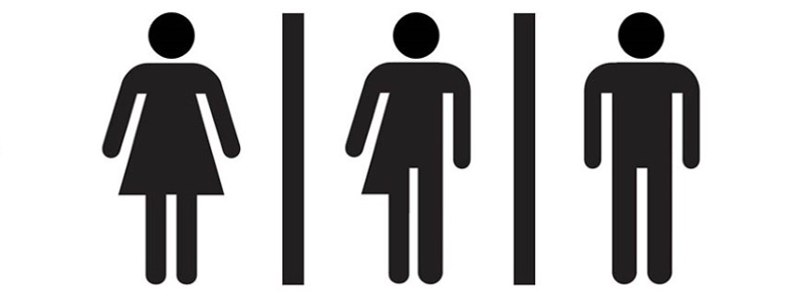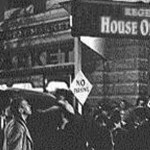A Conversation We Have to Be Allowed to Have About Identity Politics and Media
This is going to be a difficult post. It deals with a volatile issue on which many people don’t feel comfortable (or safe) commenting publicly, and it is about people’s personal lives. Unfortunately, one of those people has forced the situation into the public eye, deliberately (I’d say) because it is so intimidating to disagree publicly. If nobody can “judge,” the personal story can advance an ideology without allowing dissent.
That person is the former Donald Anderson, executive minister of the Rhode Island State Council of Churches, who now goes by the name, Donnie, having decided to live as a woman. Anderson is in the news because Karen Lee Ziner of the Providence Journal has published a follow-up story about the effect of the transition on Anderson’s 23-year marriage.
To get right to the point, the story is exploitative of Anderson’s wife, who has legally changed her name back to what it was prior to the marriage and considers her relationship to ended as if in divorce, although it appears to continue as a sort of legal fiction, perhaps to maintain retirement and other benefits. Her continuing grief over this sudden change in her life comes through very clearly, although she also clearly understands what it is she’s supposed to say.
That the Providence Journal would publish this story seems ideologically salacious. That Anderson would put her through it, on the other hand, seems only too in keeping with the whole transition. The decision to become a woman wasn’t something he’d worked through with his wife as the determination came to seem inevitable. Rather, he ordered a bunch of woman’s clothes and sprung it all on her during the delivery window.
Then the packages of clothes started arriving one after another, salting the wound, as Anderson’s wife put it. The interview with Ziner — unbelievably conducted in public at Sin bakery in Providence — was not with the wounded woman, alone, but with Anderson hovering, offering “reassurance” when, every now and then, her “eyes mist[ed] over and her warm, open expression [grew] wistful.”
One gets the impression that this isn’t an uncommon story. Anderson’s (former?) wife tells of attending a conference in Massachusetts and a closed session for the “SO’s” (that is, “significant others”) of transgender people: “All of them were women.”
The article doesn’t speculate as to the reason for this gender imbalance. Perhaps married men are more likely than married women to declare their transgenderism, while married women are more likely than married men to try to find some way to keep the relationship going after such a declaration.
That’s a question the people promoting this radical social change should address. They should also address the propriety of holding affected family members out for public scrutiny, especially when they’re so obviously hesitant.
But in the end, this story isn’t about affected loved ones. It’s about The Cause. It’s about Anderson. What else it might be about, we’ll learn soon enough. One of Anderson’s daughters tells Ziner she had thought her father had asked to meet with her not to make a transgender revelation, but because he’d been talking about running for public office and had decided to do so.
If a campaign is on the horizon, we can be sure that what we in the voting public are and aren’t permitted to say about the candidate will play a major role.




